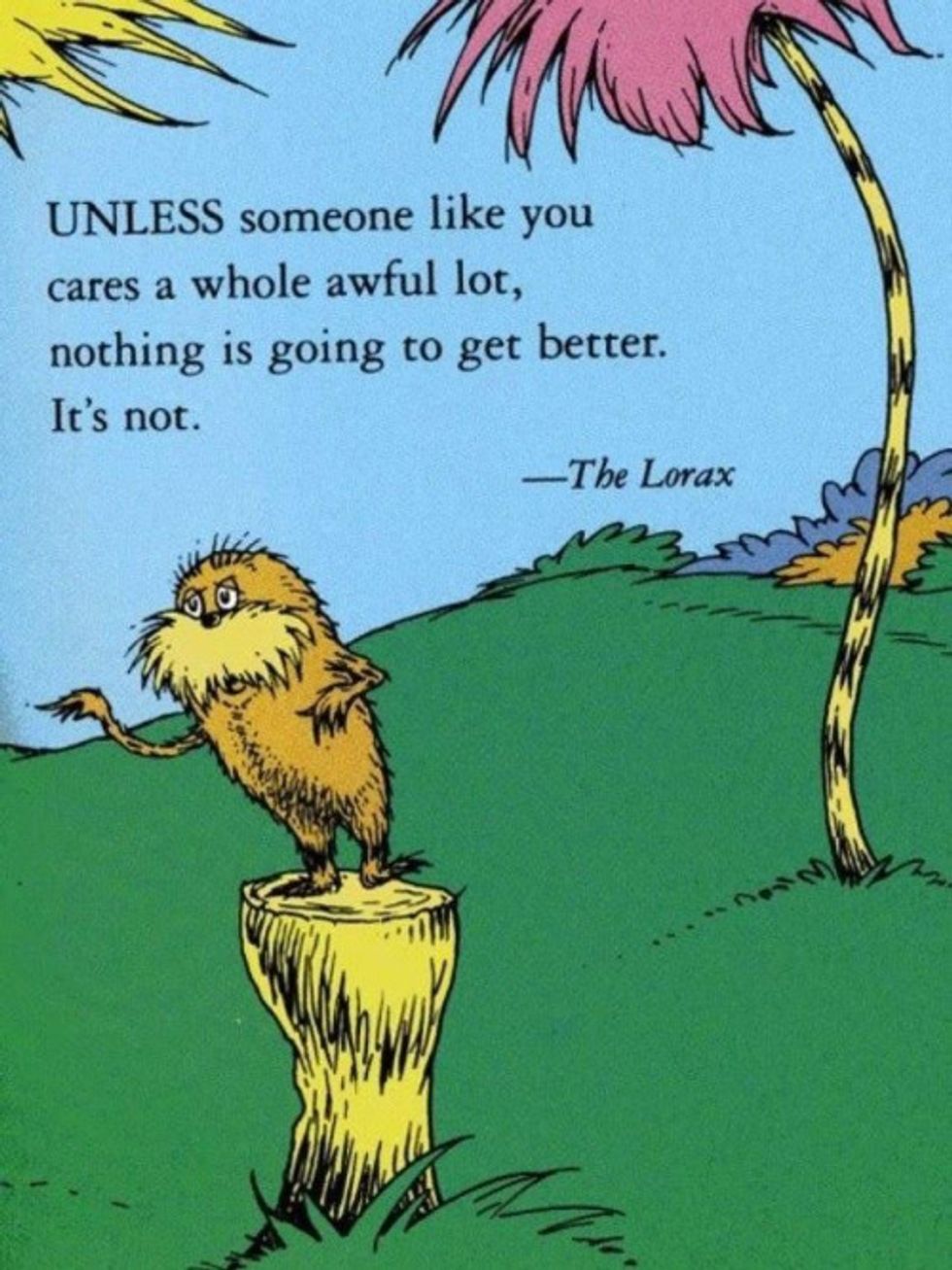In light of the proclamation of the apparent decease of the entire Great Barrier Reef, I'd like to add my own fifty cents — akin to what I imagine the website was thinking as they published their viral piece, appropriately titled "Obituary: Great Barrier Reef (25 Million BC - 2016)" with the intent to elicit one of the biggest reader responses this year. It only took 19 hours for the piece to garner 1.4 million page views — 1 million of which were definitely from my Facebook friends — and that number continues to grow as we speak. But I have just a bit of an issue with tabloids — especially scientific ones — which is why upon reading the incredibly oppressing "obituary," I couldn't believe something so radical could go so viral. I am no coral reef expert, but as a first year marine biology major, I have to question the objective behind the the site's publication and approval of such an exaggerated claim. Unless the objective really was to go viral and bring the reef to the public's attention, which is just what the article did, the piece was a major flop. Rooted in the dismal observations of one man, the article relays the overall message of hopelessness with such certainty that when Huffington Post interviewed two leading coral scientists in their piece "Great Barrier Reef Obituary Goes Viral, To The Horror Of Scientists," they called it "wildly irresponsible." While I wholeheartedly agree with these accusations, I'd like to clarify — my opinion piece isn't a rip on Jacobsen's work. As Russell Brainard, chief of the Coral Reef Ecosystem Program at NOAA’s Pacific Islands Fisheries Science Center, stated in the aforementioned Huffington Post article, he expects the article was only meant to highlight the urgency of the situation. Yet if all it takes to shift our focus is the opinion of one person, we need to reconsider our values — both regarding how we react to rhetoric and our concern with pressing topics like global climate change.
If we consider for one moment that Jacobsen's ludicrous claim was actually an ingenious ploy to amplify conservation efforts, we need to understand the consequences. At this point, the Great Barrier Reef has been spotlighted by Huffington Post, CNN, The Guardian, LA Times, Spokesman and of course Australia's Outside. Not to mention that it has been the subject of numerous tweets and Facebook shares — which brings up a compelling question — should we sacrifice truth for proliferation? Even if it is for a great cause, don't we have a right to be informed rather than mislead into carrying out someone else's wishes? What's truly interesting is that this dilemma has been the source of major discussions regarding the accommodation of scientific content to the greater public. According to Jeanne Fahnestock's 1986 scientific article "Accommodating Science: The Rhetorical Life of Scientific Facts" and my English professor, the real danger of hyperbole in scientific papers is how the real message may get lost in translation. Fahnestock's most illustrative example of this phenomenon is how the title of one research paper on the role gender plays in mathematical ability was worlds away from the title popular source Time magazine gave their work — dispelling any doubts the actual scientists had about their findings. Just as Time blew the study out of proportion, Jacobsen invented the idea of the reef's definite extinction and had millions believe his lie. Worst of all, the article made many believe there was nothing else that could be done about the corals. While it's important to note that Fahnestock was analyzing the effects of translation on a large scale and Jacobsen was certainly not describing ground-breaking news, that doesn't mean he should single-handedly claim that the single most diverse marine ecosystem in the world is just flat-out dead. This means that we, as informed readers, shouldn't quickly buy into just any claim. Just because it's gone viral doesn't mean it's true. And it shouldn't take an obituary to awaken our compassion.
Regardless of who we're pointing finger at, the issue still stands — coral bleaching and ocean acidification is a real threat to the abundant underwater ecosystem, but we should approach it with a plan of action instead of a R.I.P. hashtag on a Twitter post. With the conscious efforts that have been implemented to combat rising carbon dioxide emissions, we can hope to see a decrease in ocean carbon dioxide levels and therefore diminish the threat of ocean acidification. This in turn can withhold extreme coral bleaching that occurs as a result of changes in temperature, light, or nutrient availability. The big idea, as always, revolves around humans' negative contributions to climate change. But realistically, I don't think anyone wants to make major changes in the ways they live their lives, which is why small-scale action is so vital to the success of this mission. So here's my plug for conservation — we won't know what we may miss out on unless we've snorkeled in the Florida Keys, trekked up the Rockies or admired the first spring flower in full bloom. In a way, I guess we can thank Outside for bringing up one of the biggest issues at hand and reminding us of just how pertinent it is that we think for ourselves. But most of all, we should understand how important it is to always keep fighting for what we love.




















